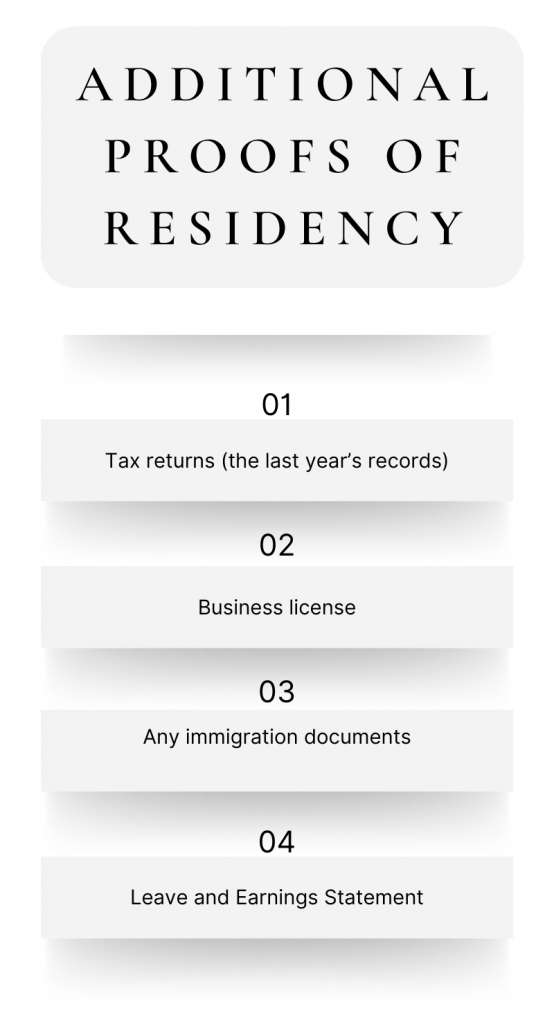In Texas, you have to fulfill certain conditions before you can file for marriage dissolution. One of them is a residency requirement, which is the minimum amount of time a petitioner or their spouse has to live in the state before they are legally allowed to file for divorce there. The local court can have jurisdiction over your case only if this condition is met.
As of 2026, Section 6.301 of the Texas Family Code still requires that either you or your spouse has lived in Texas for the preceding six-month period and in your current Texas county for at least 90 days prior to filing for divorce.
Understanding the Divorce Residency Requirements
To start the divorce process, you have to submit the Original Petition for Divorce and other necessary paperwork to the county clerk’s office. However, you first need to ensure you meet the residency requirements. In Texas, they are clearly defined by current law and stated in TFC 6.301 – 6.305. To file for marriage dissolution, either spouse must live in Texas for at least 6 months and be a resident of the county where the divorce papers will be submitted for no less than 90 days. Residency requirements do not differ for same-sex and opposite-sex marriages in Texas.
If you have recently moved to the state, you must wait until you have been a resident of Texas for 6 months before the state courts have jurisdiction over your case.

Exceptions to the Residency Requirement Rule
Some exceptions to residency requirements can only apply to non-residents and military personnel.
Following the 2025 legislative session, the rule remains: a non-resident spouse may file for divorce in Texas as long as the other spouse has maintained Texas residency for at least six months. A non-resident spouse should submit a divorce petition to the county where the domiciliary spouse currently resides (TFC 6.302).
For individuals who lived in the state but were obliged to relocate to another state because of their military service or together with their spouse who is a military member, the period of their absence will still be considered residency in Texas. They can file for divorce in Texas after their return if they meet the standard requirements of the state (TFC 6.303).
How to Prove Residency in Texas?
While many uncontested divorces proceed with a simple testimony, in 2026, courts are increasingly diligent about verifying residency through digital records or standard documentation if the filing is challenged. As a legal resident of Texas, you should have paperwork showing that you lived in the state for at least 6 months and established a domicile there.
Proof of Domicile
A domicile is a place where you maintain a permanent home. In order to support the establishment of a domicile in Texas, you need to provide one of the following documents:
- Employment verification or self-employment earnings statement. You must also provide bank receipts.
- Documents of real estate ownership. It can be your own or shared with your spouse.
- Certificate of marriage with a resident of Texas.
- Document of business ownership in the state.
Additionally, you will need to present one of the forms on the list that attest to your actual physical residency in Texas. Typically, two documents are sufficient to demonstrate Texas residency. As an alternative, you could have a witness formally attest to your Texas residency.

Proof of Physical Residency
To show that you have physically resided in TX, you will have to provide one documents from the list below:
- Utility bills (with your name).
- College or university transcript.
- Driver’s license or ID card with origination date.
- Voter registration card with origination date.
- Statements provided by at least one social service agency.
- Rental agreement.
- Bank receipts.
- Paycheck stubs.
In 2026, many Texas counties (like Harris, Dallas, and Bexar) now accept digital utility bills and e-statements as primary proof of residency without requiring physical “blue ink” originals, as long as they are submitted via the e-filing system.
Additional documentations
The following documents can be provided to establish both domicile and physical residency:
- Tax returns (the last year’s records).
- Business license.
- Any immigration documents.

Filing for Divorce When You Are Out of State
Divorce when living in different states is mainly complicated due to jurisdiction issues. A local court needs to be legally granted a right to make decisions concerning all parties to the case and their property.
If you are the filing party and are domiciled in Texas, the court may establish a Texas divorce jurisdiction over your spouse if the last time you lived together was in this state, and it was less than 2 years ago. Jurisdiction establishment will automatically extend to your children if any.
If you are a resident of another state trying to file in Texas, make sure that your spouse is domiciled there and file in the county where they have resided for at least 90 days. Out of state divorce in Texas will not necessarily require you to be present in court if you and your spouse are in agreement. Otherwise, or upon court request, you will have to travel to be present at the hearings.
What are the Options if You Do Not Meet the Residency Requirement?
As establishing residency in Texas to dissolve a marriage there takes half a year, you might want to consider filing for divorce in another state where you have previously resided or just waiting.
In general, to file for divorce in another state, you must meet the residency requirements there so that the court can have jurisdiction over your divorce case. It means that, as a rule, you will have to live there for a certain amount of time before filing or show intent to stay there permanently.
Otherwise, you will have to wait to establish residency in Texas or contact a lawyer if you believe there may be an exception in your case. If you are a non-resident but wish to start your divorce in Texas and become a resident, you do not need to apply for Texas residency. It will be granted to you automatically after you meet the 6-month requirements.
| Filing from Out of State | Do Not Meet the Residency Requirement | Military Family Law Cases |
|---|---|---|
| Jurisdiction issues | Consider filing in another state or wait | Residency same as civilians |
| Texas jurisdiction if domiciled in Texas | Establish residency in Texas or seek legal advice | 6 months in Texas, 90 days in specific county |
| File in county of spouse’s residence | Wait to establish residency in Texas or seek legal advice | Either spouse can initiate case in county |
| Travel for hearings if not in agreement | Intent to stay or residency requirements in another state | Recognition of time spent serving in another area |
| Automatic Texas residency after 6-month requirements |
Since several neighboring states (like Oklahoma) debated changing their residency laws in 2025, it is more important than ever to file first in Texas if you meet the 6-month/90-day requirement, to ensure Texas law (and its specific community property rules) applies to your case.
Residency Requirements and Military Family Law Cases
Texas residency for military members is the same as for civilians – 6 months in the state and 90 days in a specific county. In this case, either you or your spouse may initiate a case in that county. If you are stationed in Texas but meet the residency requirements in your home state, you need to consider where it would be best to file before you start preparing the documents.
It is a frequent situation for spouses serving in the military to have a home in Texas but to be absent for an extended period of time serving in another state. In this case, they are still eligible to have their divorce filed in Texas. According to the Texas family code, the time spent serving in another area will still be recognized as if the spouses lived in Texas.

Create your free account to see if you’re eligible to file for online divorce in Texas. Complete all paperwork from the comfort of your home, with no hidden fees.

